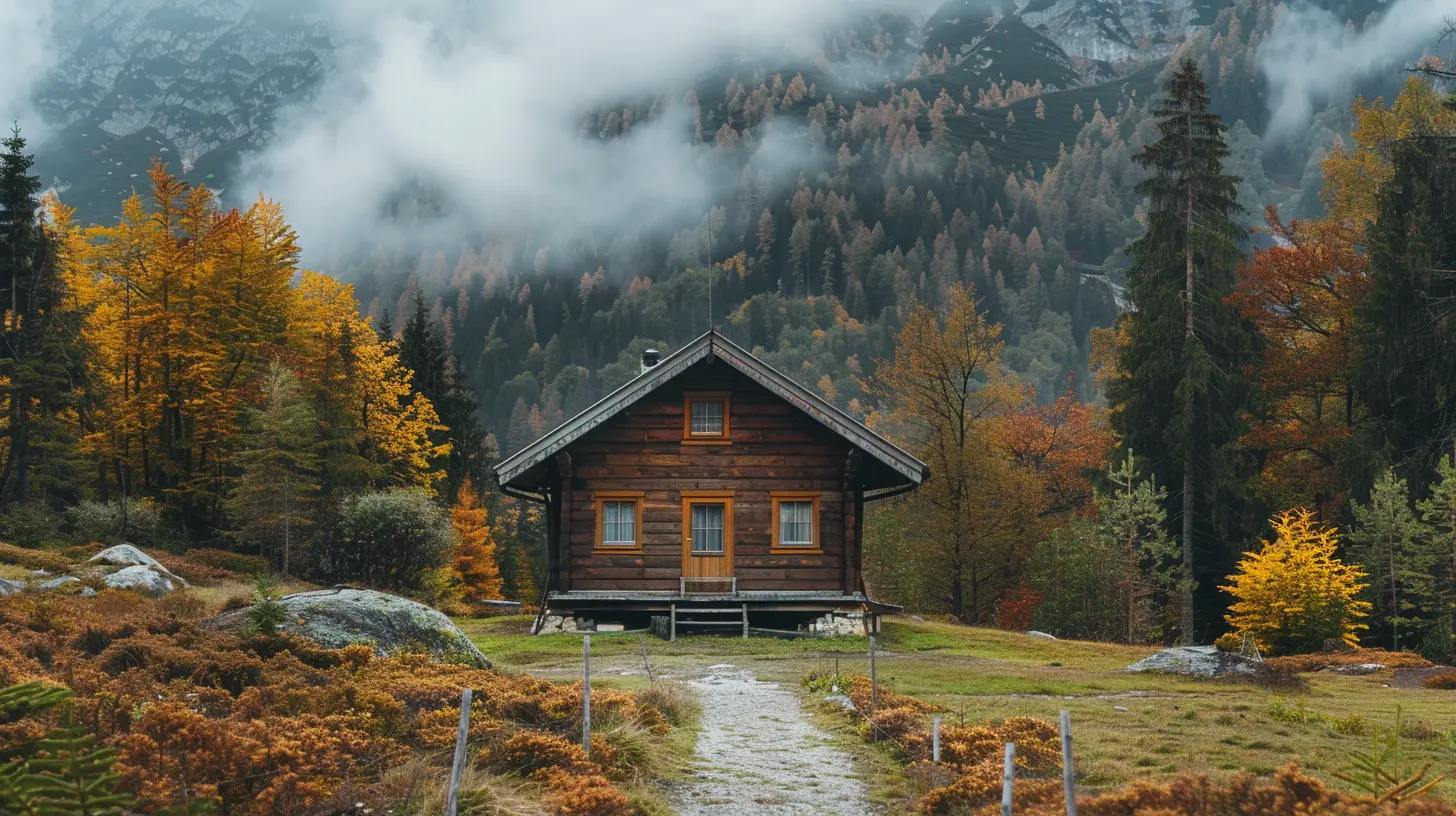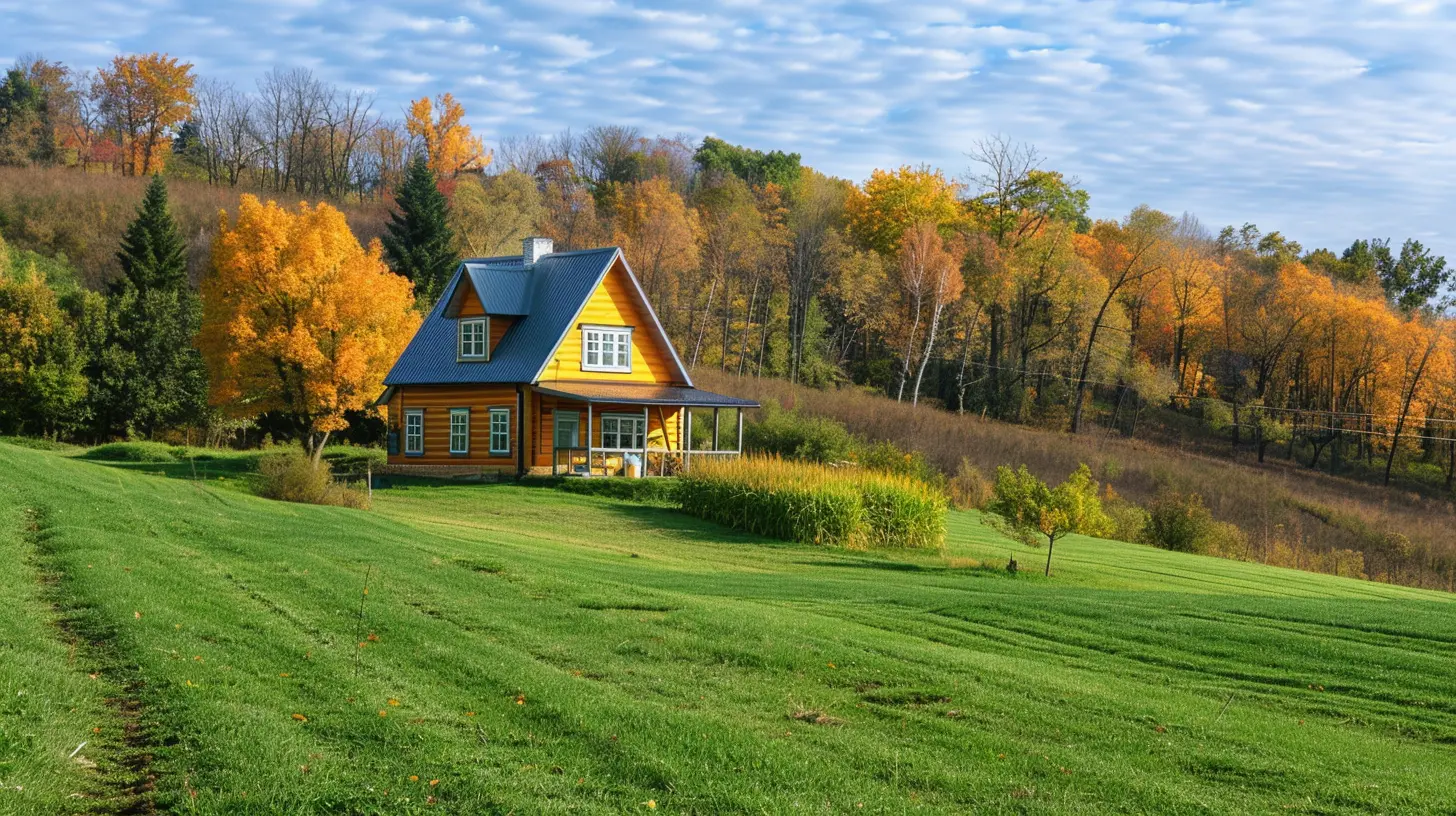The Relationship Between Home Ownership and Retirement Goals
15 October 2025
Retirement might feel like a distant dream when you’re juggling mortgage payments, bills, and saving for your kids’ college fund. But if you’re a homeowner—or thinking about becoming one—your house could be playing a bigger role in your retirement than you realize. In fact, the relationship between home ownership and retirement goals is one of the most underrated financial connections out there.
Let’s break it all down, heart to heart and dollar by dollar.
Home Ownership: More Than a Roof Over Your Head
When we talk about home ownership, people usually jump straight to equity, appreciation, or maybe even renovations. But owning a home is more than a financial milestone. It’s a sense of stability. It’s family dinners around the table. It’s your little spot on this big planet.Financially speaking, though, home ownership is one of the biggest investments you’ll likely ever make—and that has lasting implications for your future.
Think about it: if you’re pouring hundreds of thousands into something over decades, why not make it part of your long-term financial plan?
Building Equity: Your Hidden Retirement Fund
Every time you pay your mortgage, you're not just throwing money into a black hole (unlike rent). You’re building equity—real, tangible ownership in something that can increase in value over time.What is equity?
Equity is the difference between what your home is worth and what you still owe on it. So if your home is valued at $400,000 and you owe $250,000, your equity is $150,000.That $150K? That’s your money. And as your home appreciates and your mortgage balance shrinks, that number can grow—sometimes fast.
Why does this matter for retirement?
When retirement rolls around, that equity can act like a backup savings account. You can:- Sell your home and downsize
- Refinance and cash out some of that equity
- Use a reverse mortgage to access your home’s value without selling
Bottom line? Your home isn’t just where you sleep—it’s (potentially) a huge chunk of your retirement nest egg.
Owning vs. Renting: Which Is Better For Retirement?
Now, don’t get me wrong—renting isn’t evil. But when it comes to retirement goals, owning usually wins for a few key reasons:1. Predictable payments
With a fixed-rate mortgage, your monthly payment (minus taxes and insurance) stays the same year after year. Rent, on the other hand, is at the mercy of inflation and market demand.2. Long-term savings
Once your mortgage is paid off, boom—no more housing payment. That’s a huge deal in retirement when your income might be more limited. Renters, meanwhile, never escape that monthly bill.3. Asset building
Every mortgage payment chips away at debt and boosts your net worth. Rent? It just boosts your landlord’s.So while renting might feel freeing in the short term, home ownership offers long-term financial perks that align beautifully with retirement goals.
Downsizing: The Retirement Power Move
Let’s talk strategy for a second.Maybe you bought a big family home when your kids were young. But once they’ve flown the coop, you might find yourself with more space (and higher costs) than you need. That’s where downsizing comes in.
What is downsizing?
It’s exactly what it sounds like—selling your current home and buying a smaller, more affordable one. It often comes with lower maintenance, fewer expenses, and some sweet cash in your pocket from the sale.How it supports retirement:
- Frees up equity you can invest or save- Reduces utility, maintenance, and property tax costs
- Makes mobility and healthcare access easier as you age
Think of downsizing as a win-win: less house, more freedom.
Reverse Mortgages: A Double-Edged Sword
Okay, reverse mortgages have a bit of a reputation. Some people love them. Others are scared stiff.What’s a reverse mortgage?
It’s a loan available to homeowners age 62+ that lets you convert home equity into cash. You don’t have to make monthly payments. Instead, the loan is paid off when you sell the house, move out, or pass away.Pros:
- Offers liquid cash during retirement- No monthly repayment required
- You stay in your home
Cons:
- Reduces the equity left to your heirs- Fees and interest can add up
- Complexity can be confusing
It’s not a one-size-fits-all solution, but for the right person, it can bridge financial gaps without having to move or sell.
Emotional Security: The Power of “Home” in Retirement
Financial factors aside, let’s not underestimate the psychological benefits of owning your own space.Home ownership often provides a sense of pride, control, and comfort—especially when other parts of life feel uncertain. And as we age, having a stable, familiar environment contributes to emotional well-being.
Knowing you have a “safe haven,” a place filled with memories and love, is a priceless part of retirement.
Potential Pitfalls: When Home Ownership Hurts Retirement Goals
Now, I wouldn’t be keeping it real if I didn’t talk about the risks, right?Overextending yourself
Buying more house than you can afford can eat into your ability to save for retirement. If the mortgage payments are choking your budget, it might be time to rethink the plan.Ignoring maintenance and expenses
Even after the house is paid off, there are still costs—repairs, insurance, taxes, and upkeep. Forgetting to factor those into your retirement budget can be a costly oversight.Putting all your eggs in one basket
Yes, your house is an asset. But it isn’t a liquid one. If your retirement plan relies solely on home equity, you could hit snags if the market dips or unexpected needs pop up.Balance is key. Diversify your savings. Treat your home as part of your portfolio, not the whole thing.
Mortgage-Free: The Financial Game-Changer
Few things impact your retirement like being mortgage-free. When that monthly bill disappears, so do tons of stress and financial pressure.Benefits of retiring mortgage-free:
- Significantly lower living expenses- More flexibility with fixed income
- Ability to redirect that money into hobbies, healthcare, or travel
If possible, aim to pay off your home before you retire. That breathing room can make all the difference between scraping by and living comfortably.
Taxes, Deductions, and Retirement Planning
Let’s not forget Uncle Sam.Property taxes
Even after you pay off your mortgage, you’ll still owe property taxes. These vary by state and can increase over time. Don’t let them sneak up on your retirement budget.Capital gains if you sell
Good news: If you sell your home for a profit, up to $250,000 (or $500,000 if you’re married) of that gain is tax-free—as long as it was your primary residence for two of the past five years. That’s a huge break, and it can help fund your next living arrangement or bulk up your retirement savings.Your Home in Your Estate Plan
Your home isn’t just yours—it’s part of your legacy.If you want to pass it on to your kids, include it in your estate plan. Consider whether they’ll want to keep it, sell it, or rent it out. Planning ahead avoids confusion during an already emotional time.
Also, think about setting up a living trust. It can help your home avoid probate and ensure your family inherits it faster and with fewer legal headaches.
A Home-Tailored Retirement Game Plan
So where do you start?Here’s a quick checklist to align home ownership with your retirement goals:
1. Know your current equity – Get a home appraisal or at least a ballpark figure.
2. Calculate your post-retirement housing costs – Taxes, insurance, repairs, etc.
3. Explore downsizing options – Is less actually more?
4. Review your mortgage payoff timeline – Can you accelerate it?
5. Talk to a financial advisor – Especially if considering a reverse mortgage or selling.
Final Thoughts: Home Is Where The Smart Plan Is
At the end of the day, your home can either be a stepping stone to a secure retirement or a financial anchor that holds you back. The key is being intentional. Keep your eyes wide open, plan ahead, and remember—your home is more than just four walls.If you play your cards right, it can be your most powerful ally in creating the retirement you’ve always dreamed of.
So, are you thinking differently about your home now?
Your future self will thank you.
all images in this post were generated using AI tools
Category:
Retirement SavingsAuthor:

Yasmin McGee
Discussion
rate this article
1 comments
Miranda McConnell
This article effectively highlights how home ownership can impact retirement goals, balancing financial stability with potential risks. A thoughtful approach is crucial for long-term planning success.
October 25, 2025 at 12:20 PM

Yasmin McGee
Thank you for your insightful comment! I'm glad you found the article useful in highlighting the balance between home ownership and retirement planning.


